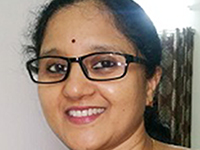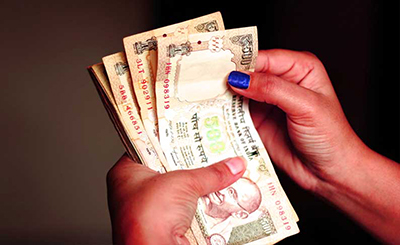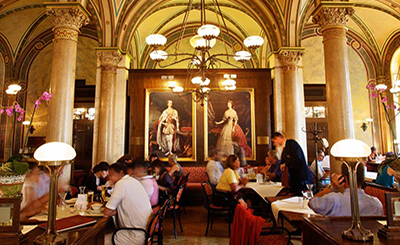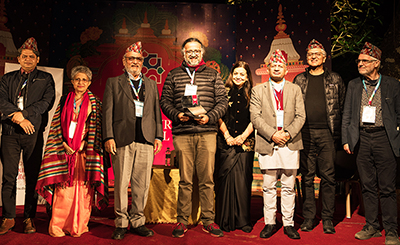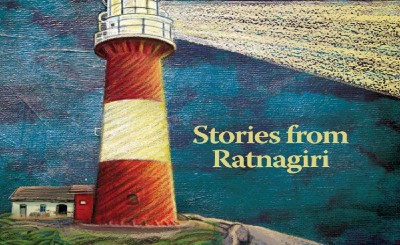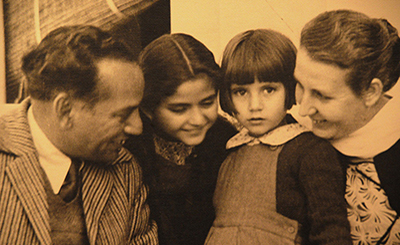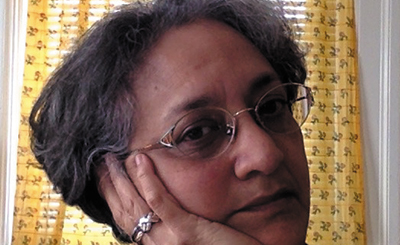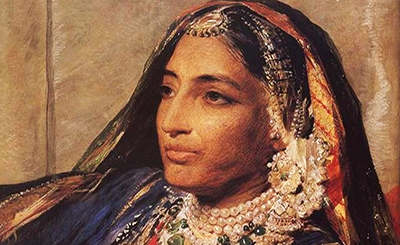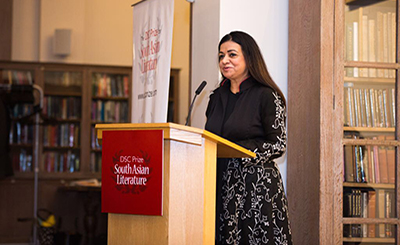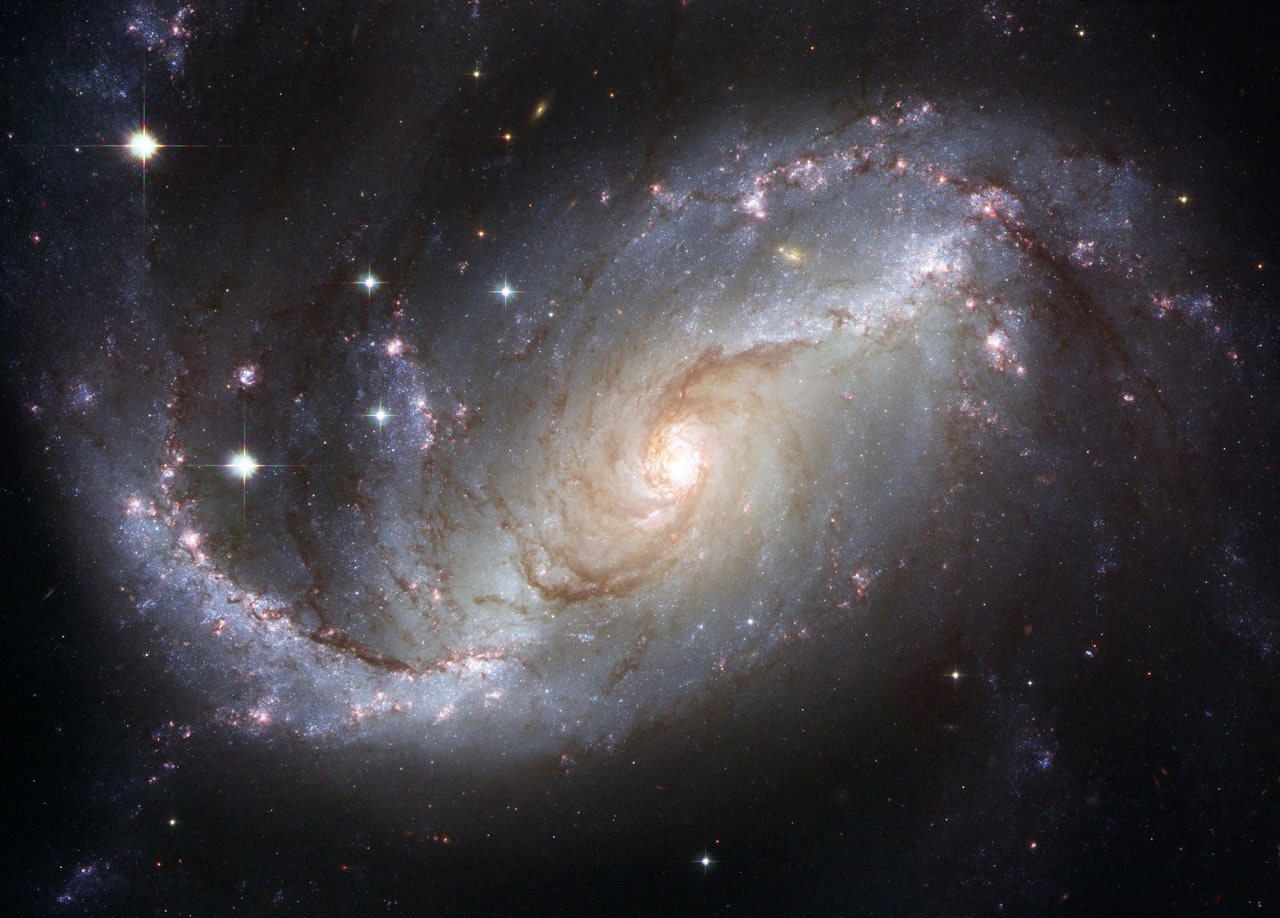
2019
‘See, that star.’
Jacob sir pointed to the western sky. On most days we sat on the dried bunds near the rice fields watching the last line of orange in the sky. When the moon rose, he said there was promise. A promise of a new dawn. We listened to his mutterings without doubt.
‘It’s not a star. It is the International Space station. It flies above the earth’s surface at 17,500 miles per hour.’
I knew miles, the milestone at the end of our village, where the mud-track met the highway. Last summer, I wandered to the edge of the village and sat on the milestone the whole afternoon counting the number of white cars passing that way. When my mother heard about it from my friends, she grabbed a broken branch and ran towards me.
‘Emi, panileda, roaming on the roads? Dorsaniva?’
Maybe she wanted to be a dorsani herself. I giggled nonstop whenever my grandmother described how my mother kept her mouth open and her eyes twinkled imagining being dressed like a queen. And my grandmother whacked her blue and black on days she sat under the oleander tree and dreamt. My mother spanked me in the same way. Probably that was the only way they learnt to express their anguish. That day, by the time my mother reached me, I lay fainted on the road. Dust from passing vehicles covered my face, coated my neck, my arms and some was wedged in my nostrils.
‘The scientists conduct experiments in the space laboratory.’ Jacob sir was not a dora but has read a lot of books.
One of the girls asked, ‘experiments?’
‘Like the tests you do in science, in school.’
We never did any tests in school. Ours was a small school and we were only a handful of boys and girls who loitered in the premises flinging mud balls at each other. I wanted to ask Jacob sir if what I did on the highway could be considered as a test. But Jacob sir was deep in his descriptions about the International Space station.
I couldn’t understand most of what he spoke but kept nodding my head. Jacob sir was our new Science teacher. I gave him the fish my mother sent. That’s how it is in my village. We paid our gratitude to the teachers who taught us with whatever we grew on our land. Sometimes it was the ripe bananas, dozens of them or raw plantains marinated with spices and sautéed or brinjal roasted on coals and mixed with curds or bottle gourd cooked in cow’s milk or pickled lemons or tegalu or thati from our backyards or the fish we caught in our pond. I couldn’t stop blinking my eyes at the thought of how many mouth-watering ways the food could be cooked. We gave our teachers the raw food and assumed the teacher/s would cook it the way they liked with the spices and salt they purchased with their salaries. I listened as he told me about the people who lived in the tiny capsule several miles above the earth.
‘Can we go there?’
He smiled and I could see his cheek bones poking out just like the bones on my chest. That hot afternoon, my friends sat beside my fainted body and counted the number of bones jutting out. They said my body hardly had any flesh. I was testing for how long I could live without food. My mother hugged me and lamented that I didn’t eat anything from the past two days, as if she was any chubbier than me. They (my mother and friends) took turns to drag me home. She poured a bucket of cold water on my head. I woke up coughing water out of my lungs. My eyelids opened and closed in panic; my hot skin cooled. She made me drink ganji water.
Jacob sir was busy telling me about studying well. He said we must first study well at school, then at college and then he said something about America. I knew America. It was the place where the Sarpanch’s son lived but I didn’t know about the place called NASA. I liked the word NA — SA, and said aloud NA-SA, NA-SA, NA-SA. He stopped and looked at me. The other children laughed like they did when one of us fell down while playing Kith-Kith. It’s a shame if one couldn’t hop through the seven houses.
I stood up and asked, ‘but I only want to go and see it. Once, that’s all.’
It was my turn to laugh at my friends. They didn’t think I was planning to go to NASA. I could be the first one to go, because I asked first.
Jacob sir didn’t say anything. Probably he too didn’t expect me to ask something like that. After a minute he said, ‘you’ll understand when you grow up.’
‘But I want to go only once.’
He laughed and sent us home.
I wanted to tell him about the silvery-white fish, about how we splashed in the murky waters of the pond, about how I sunk my toes in the shallow bottom, about how I caught the fish by its tail when it flicked past me, about how I knocked its head on the rock, about how hungry I was that I was about to eat it raw, about how one of the boys yelled that the fish was Jacob sir’s night meal, about how the other children threw twigs and stones at me to prevent me from eating it, about how the fish had more bones than flesh, about how I hid on the old peepal tree, about how the boys rested on the spiny grass after the long swim, about how their stomachs were drawn in, about how their skin greedily absorbed the droplets of water before the sun could snatch their share of sustenance, about how we pelted stones on the dusky waters and then went home smelling of dryness and hunger. I even wanted to tell him that the fish had more meat on their bodies and that was before the nearby factories spurted, so said my father. There was so much about our village that I wanted to tell him.
I wanted to ask him, ‘if we could do all this, why couldn’t we go to NASA?’
Next morning, I saw Jacob sir sipping tea outside Avva’s tea stall. Avva was the oldest and fittest woman in our village. Her husband and son died, bitten by the deadliest python that visited our village during the floods. All the men in the village killed the python with their scythes. Avva took a vow that as long as she was alive no python would ever bite any of the villagers. Since then, she has been awake, day and night. She grew herbs in her backyard and made tea with them. ‘Magical,’ she said.
My father walked up to Jacob sir and asked, ‘will we get kallu there, Master Babu?’
‘Yes, if people like you went up.’ Jacob sir said.
My father guffawed and said, ‘last night this gal slept on the bunds. She wants to go up there. Don’t we know the sky is blue? Stupid girl!’
Jacob sir didn’t know what to say to my father whose legs and words wobbled like the snake gourd on our roof. He got up and walked away.
My father shouted behind his back, ‘she fell in the slush in the rice fields. She was watching your station in her dreams. Hahaha. Your space station.’
My mother asked me if we could grow rice there. She said, ‘at least cook some ganji to fill our tummies.’
Her figure appeared thinner and thinner and then seemed to obfuscate in the surrounding miasma. I could hear only her voice. My friends said her spirit came to visit me, to make sure I drank the ganji in the mud pot. I will never come to know that she did the same experiment as I did. All she wanted was I should live like a dorasani.
I left school. I went to the paddy fields with the other women to plant, transplant and weed our lives. On the first Friday of every month a white van arrived at the school gate. They brought milk cans and bread. Jacob sir didn’t remove my name from the register. I went in that day to drink the sweet milk and eat soft bread.
After a few months Jacob sir left our village. We heard he got another job in the city. No teacher ever came to our village and even if they did, they went away soon. I repeated NASA every night and tried to spot the space station through the window in my hut. But like sir said, the sky was never clear, there were no blue clouds, only grey clouds hazing the sky, hazing our dreams.
2020
We had plenty of rains. The effect of the Crown they said. The earth developed a soft pink hue on its outer crust, as if someone scrubbed its back, cleaned all the poisons in the air, water and soil. Rains are metaphors. It rained on our heads, on our houses and on our fields. We planted paddy. Tractors moved up and down the fields sifting through the slush. I sat on the bund and watched women dressed in colorful flannels transplanting paddy saplings. We had no school because there was no teacher. I walked behind my invisible mother carrying food for her and for me. My father never worked. He drank kallu all the time. At night when he spotted me watching the sky, he cracked his stale joke about opening kallu shop in the sky.
We had two harvests. There was plenty of food in the village. In the television we saw the new virus was crowned the new king and how the whole world stopped working and bowed to its virulence, but we didn’t. We, the annadatta, never bowed or rested. When the whole world slept, we tilled the land and worked hard in the fields till we could put bread on the plate.
The factory near our village ceased to work. Some of them helped us in the fields while some moved to their home towns. I was thinking about Jacob sir. It was almost a year since he left. Was he still working? What will he eat if he didn’t have a job? We could have provided him food if he stayed back in our village.
My father bought a new mobile phone — smartphone — he yelled in my ear. He showed me pictures — of peacocks dancing in the rain, leopards roaming in the temple premises, the blue skies drifting over green hills — he said it was due to no-pollution — the poisonous fumes emanating from factories died. There were new birds visiting our village — the bee eaters, spoon bills and other migratory birds whose names I didn’t know — sitting on the tamarind trees.
One night I spotted a bright star in the night sky, through my window. Was it the space station? Since then, I watched it every night till my eyes shut heavy with sleep. I wished Jacob sir was there teaching us about space and birds and science. When the whole world decried, I rejoiced because of two reasons — one, I could see the space station clearly and two, we had plenty of rice in the village. The children of the village could eat to their heart’s content. No one liked my theory but I never cared as long as our stomachs were full and we could dream of lands beyond the earth. I waded in the slush of the rice fields chasing egrets — big and small, white and grey, boisterous and still — fishing for the blue-eyed fishes.
2021
I wish the Crown stays forever. People will learn to bow their heads. As if my wish is fulfilled, I hear the news of a new relative of the Crown and its candid nature. I am sure the factories will never rise and there will be more and more of no-pollution days. We will be able to see the blue skies every day. At night I will be able to see the astronauts watching me from their window, sticking their faces to the glass panes, wondering what transformed the Earth into clods of green and blue. Then I will see them stepping out of the space station into my village, eating rice and fish with me…
Glossary: Tegalu: tender palm shoots; Thati: palmyra palm fruit; Kallu: toddy; Master: Teacher; Babu: a polite way of addressing; Ganji: rice water; Sarpanch: headman of the village; Annadatta: provider of food, farmer
More from The Byword
Comments
*Comments will be moderated
Beautifully expressed! Craving for science and curiosity brings satisfaction. Keep it going ma'am!
Yvonne Devaneson
Dec 13, 2021 at 02:33



